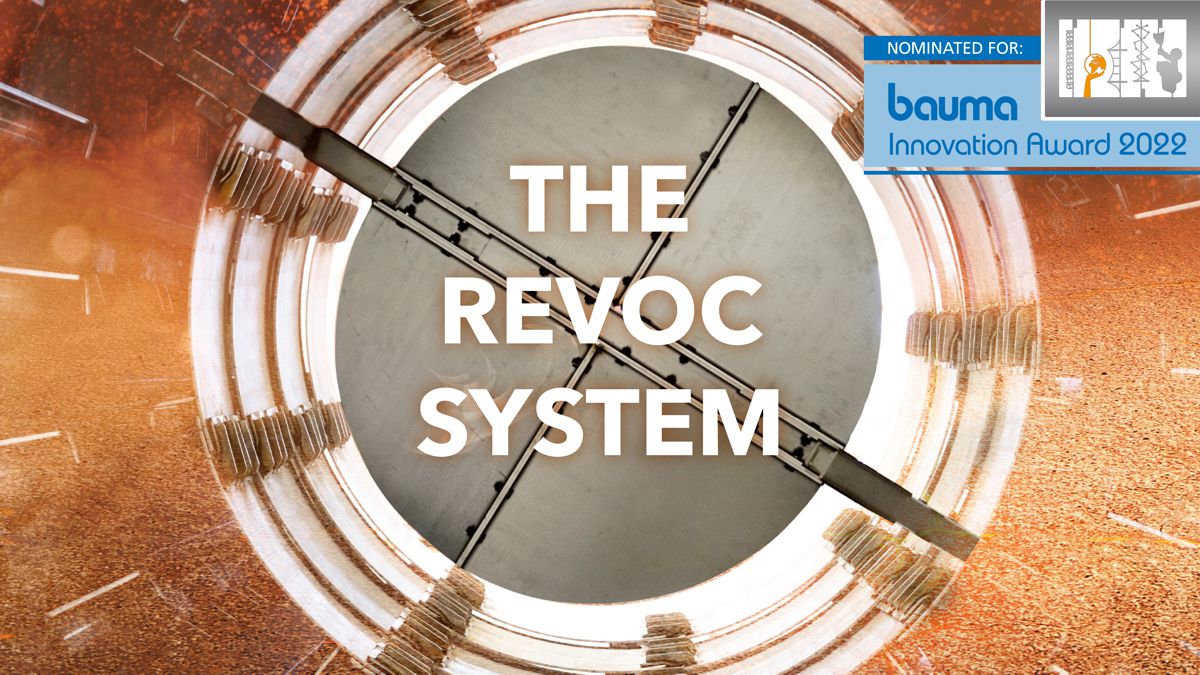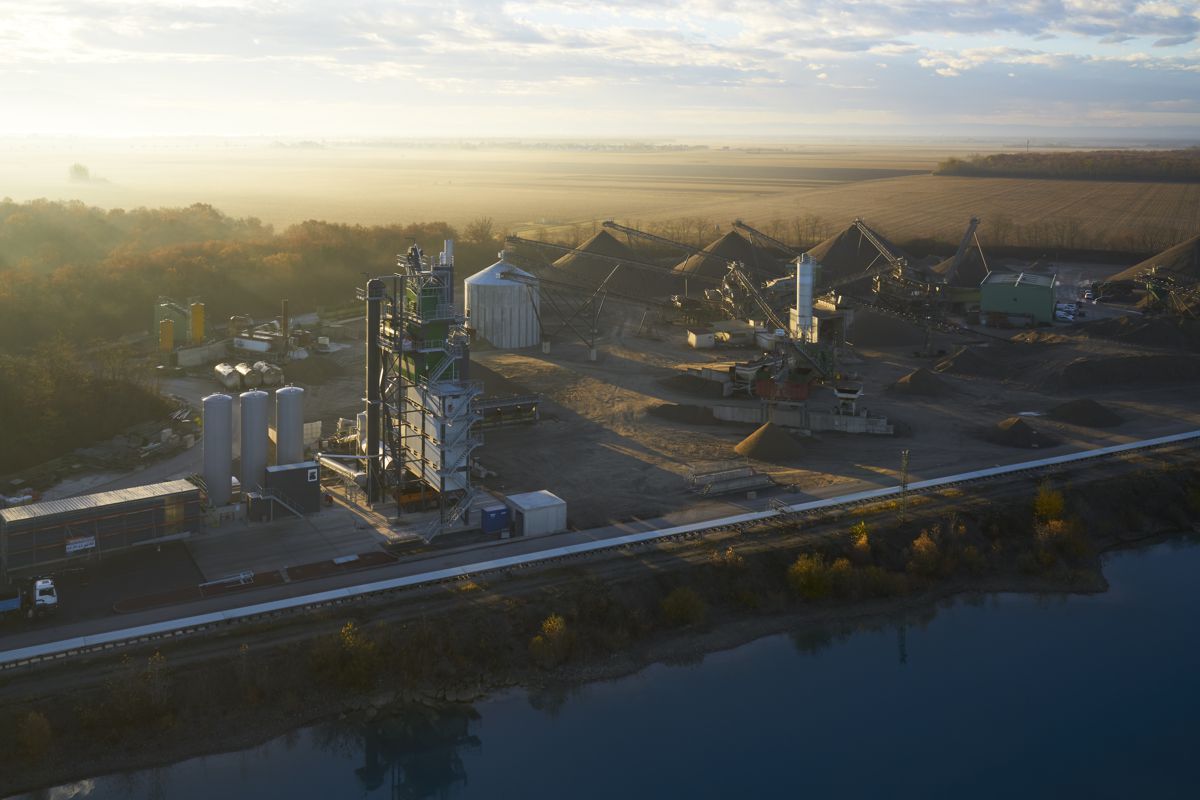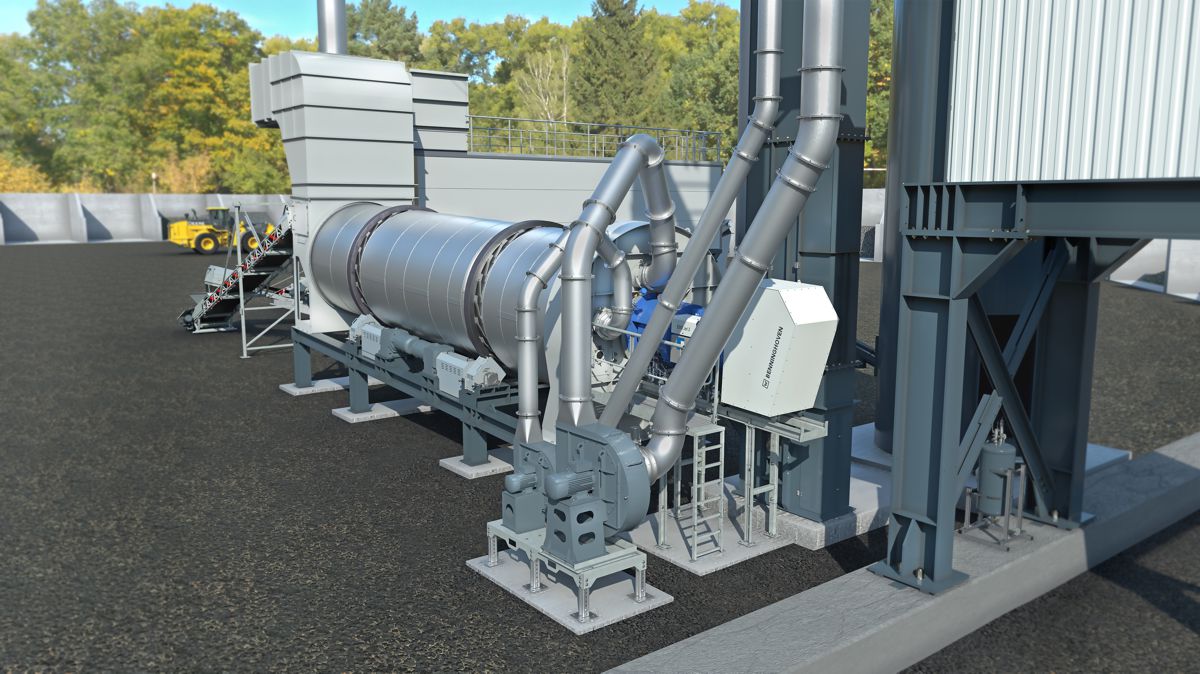Benninghoven Asphalt Plant Catalyst system nominated for bauma Innovation Award
The REVOC system is a technology for reducing the output of greenhouse gases from asphalt mixing plants.
In addition to reducing CO2, it can reduce the total carbon emissions by as much as 50 %. The innovative recycling system can meet or even stay below the increasingly more stringent emissions limits in asphalt production. The REVOC system has been nominated for the 2022 bauma Innovation Award in the “Climate Protection” category.
Asphalt recycling as an important contribution to the circular economy
Conserving resources, environmental protection and economic efficiency are not mutually exclusive. More new roads are being refurbished than built, generating accordingly large volumes of reclaimed asphalt.
At the same time, asphalt mixing plant owners are faced with the challenge of complying with the limit values for asphalt production that have become more stringent in many regions worldwide.
The requirements are increasingly moving towards using the largest possible amount of added recycling materials, not only with sustainability in mind. It is also economically viable because reclaimed asphalt is much cheaper than other aggregates.

Fewer emissions and higher recycling rates of up to 60 %
Reclaimed asphalt can currently already be added to the production process using reliable cold and hot recycling technologies. This, however, results in higher total carbon emissions (Ctot, volatile organic compounds – VOC).
When reclaimed asphalt is heated, part of the Ctot concentration volatilises from the bitumen in the recycling material. Ctot has a higher greenhouse potential than CO2 and is hazardous to health in higher concentrations.
The higher the recycling rate, however, the less fresh bitumen is required and the lower the carbon footprint. Increasing the recycling material from 40 % to 60 % alone can save approx. 440 t of CO2 per year* (annual production of 100,000 t, coal dust as fuel).
In the past, it was practically impossible to resolve the conflicting objectives of meeting high recycling rates for reclaimed asphalt while protecting the climate. Thanks to the powerful REVOC system, the two aspects can now be consolidated: reducing Ctot emissions by up to 50 % and implementing higher recycling rates of up to 60 %.

Energy-efficient thermal processing
Firstly, the REVOC system extracts the emissions directly where they are generated, primarily from the mixer in the asphalt mixing plant, where heated mineral, recycling material and bitumen come together to be mixed into fresh asphalt. The generated vapours have increased Ctot concentrations and are moved to the REVOC system for thermal processing.
The REVOC system ensures a high level of energy efficiency by using the energy that is generated for drying and heating the virgin mineral (primary function) for thermal processing of the total carbons (secondary function).
Use of the system therefore not only reduces energy consumption significantly, but – most importantly – lowers Ctot emission by as much as 50 %. Valid data gained from multiple REVOC systems show that the environmentally friendly technology is already proving successful in practical application.

Securing the future of mixing plant sites
The REVOC system is also a practical solution with which existing mixing plants can meet the stricter requirements set out by state authorities.
This also includes the “Technical Instructions on Air Quality Control” (TA-Luft) regulation in Germany. The more stringent limits of < 50 mg/m3 in this regulation can be met reliably with the REVOC system. The system can be easily retrofitted on any asphalt mixing plant to to upgrade existing plants to the state of the art.
This is a key factor for the plant owner, also with respect to securing the future of the plant site, as the life cycle of asphalt mixing plants is between 20 and 30 years.




























